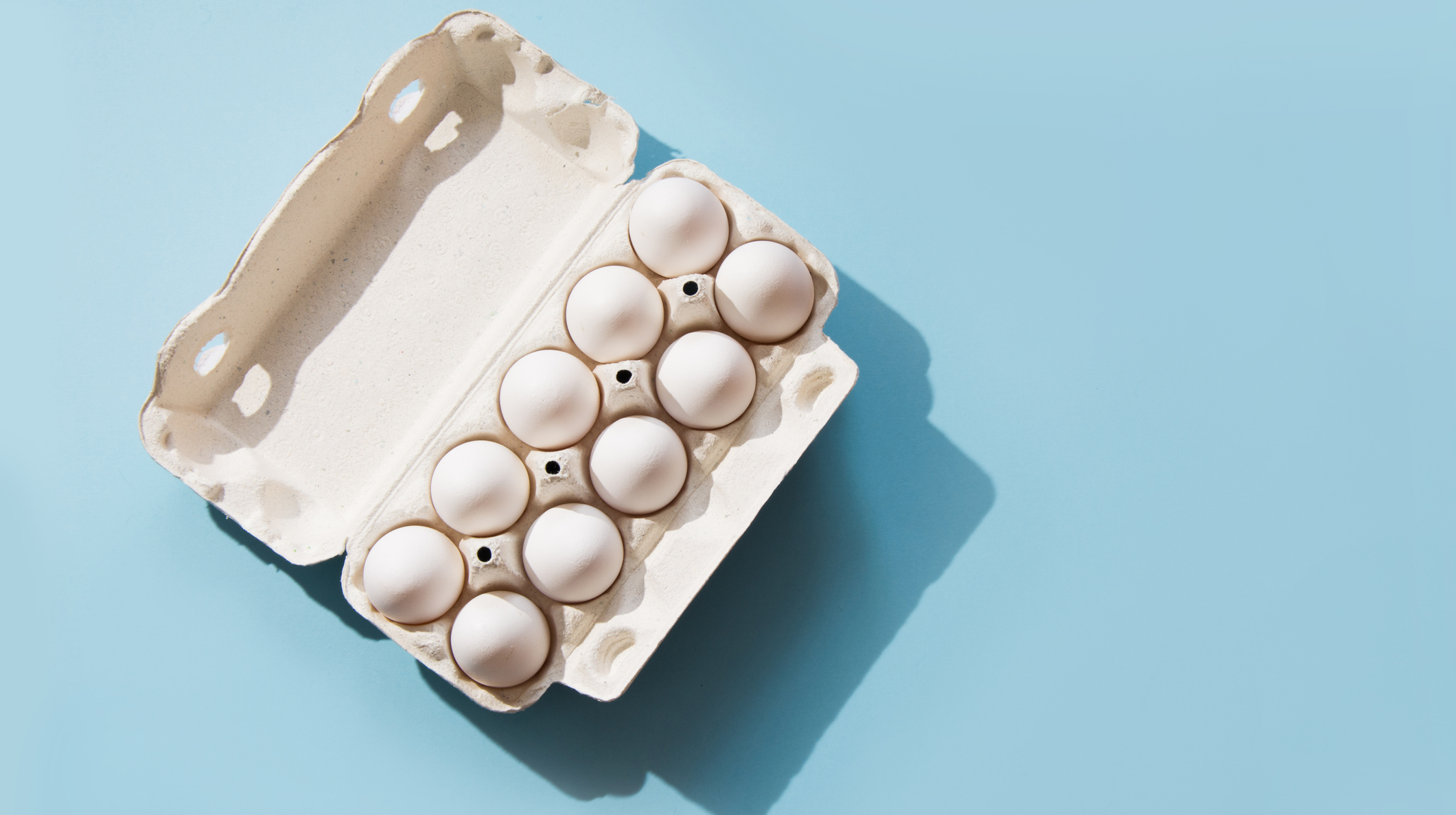Eggland's Best Patents Its Eggs, Inspires Our Deep Questions About Eggshells
Come for the news about Eggland's Best eggs, stay for the weird info I'm about to share regarding chickens who eat their own eggshells. (If that's not a thrilling cliffhanger, I don't know what is.)
First, the news: Eggland's Best announced today it received another patent from the U.S. Patent & Trademark Office for its production methods that yield a "more nutritious shell egg." If you're wondering about the press release's use of the term"shell egg," it's just a phrase that distinguishes an egg in a shell from other egg products like powdered eggs or dried eggs. Eggland's Best goes on to say that all the nutritional benefits of its eggs—including high levels of vitamins D, E, and B12, plus lower cholesterol compared to ordinary eggs—are a result of its "proprietary all-vegetarian hen feed" made up of "healthy grains, canola oil and a wholesome supplement of rice bran, alfalfa, sea kelp and vitamin E." This makes sense: What a chicken eats affects the nutritional quality of its eggs. But did you know that what a chicken eats also affects the quality of its shell?
Discussion of this shell-egg news got The Takeout staff talking about eggshells, and I, the staff's lone chicken owner, fielded a bunch of questions.
Can you feed hens crushed oyster shells to improve the quality of their eggshells? Yep. While most high-quality commercial chicken feeds contain enough minerals for good eggshell production on their own, some owners supplement them with crushed oyster shells to add more calcium to hens' diets. Calcium is a requirement for creating eggshells, so if a hen doesn't receive enough of it in her diet, her eggs could be weak or strangely shaped. Chickens can also receive additional calcium by eating their own eggshells.
Wait, chickens can eat their own eggshells?Yep. Many backyard chicken books note that owners can wash and dry eggshells and feed them back to chickens as a source of calcium and other minerals.
Whoa, chicken cannibalism!Kinda. The shells shouldn't contain any actual egg, first because there is a danger of bacteria growing on still-wet eggshells, and second, because egg residue left in the shell could encourage chickens to attack and eat their own eggs after they lay them.
Ahhhhhhhh! Weird!Yep, this ("induced egg eating") is a thing that happens sometimes. The Backyard Chicken Book explains the problem: "Egg eaters, once they have acquired the habit, are difficult to stop; and they will eat both good and bad shell eggs. Even worse, the vice spreads quickly from one hen to another." To prevent this, owners are encouraged to remove eggs quickly from the nests after laying, and not to feed their chickens wet eggshells.
So um, any other chicken or eggshell questions I can answer for you?
